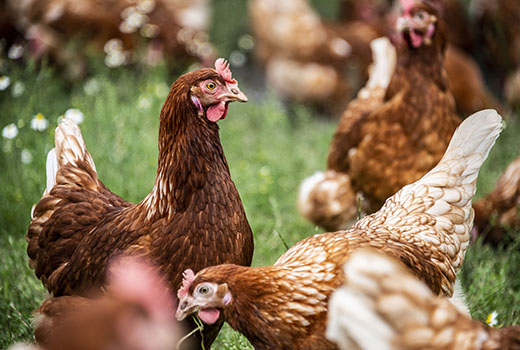
October 12, 2022Animal Law & Policy Program, Research PaperConsumer attitudes towards egg production systems and hen welfare
A new study published by our visiting fellow Dr. Michelle Sinclair and co-authors finds that egg consumers around the world want cage-free eggs, produced without suffering.
Concurrent with the growth of the human population, global egg production has experienced exponential increase in the last 50 years. This exponential growth has been made possible through the refinement of intensive egg production systems, predominately, conventional cages. The significant amount of liberties conventional cages withhold from hens has also formed the basis of growing challenge to the industry in many countries, with some major regions such as the European Union making sweeping regulatory reform. These reforms were driven by organized animal advocacy groups, fueled by aligning consumer attitudes and behaviors. In the absence of concerted hen welfare advocacy and cage-free movement in much of the rest of the world, it is difficult to know what consumer attitudes and knowledge may exist outside the European Union. This study aimed to contribute to this knowledge by surveying 4,292 members of the public at random across 14 geographically and culturally diverse countries (Australia, Bangladesh, Brazil, Chile, China, India, Malaysia, Nigeria, Pakistan, Philippines, Sudan, Thailand, UK and USA). The findings show that most participants across all countries eat eggs, most state that it matters to them that hens do not suffer in the process of producing the eggs they eat, and importantly, a majority of participants in most countries (except Nigeria) would prefer (to varying degrees) to purchase eggs from hens not kept in cages. Participant knowledge of the dominant system of egg production in their country varied greatly, with frequent uncertainty. This suggests a need for clarity and consistency in communication to consumers during campaigns, in order to mitigate confusion. Most importantly, although these similarities existed across the countries, important regional differences were also present. This underscores the importance of understanding animal and agricultural issues by geopolitical region, and of locally tailoring strategy. The findings of this research will be of strategic use to egg producers and animal welfare advocates alike in understanding and appropriately catering to consumers in the future.
Read the full research paper in Frontiers in Animal Science.
